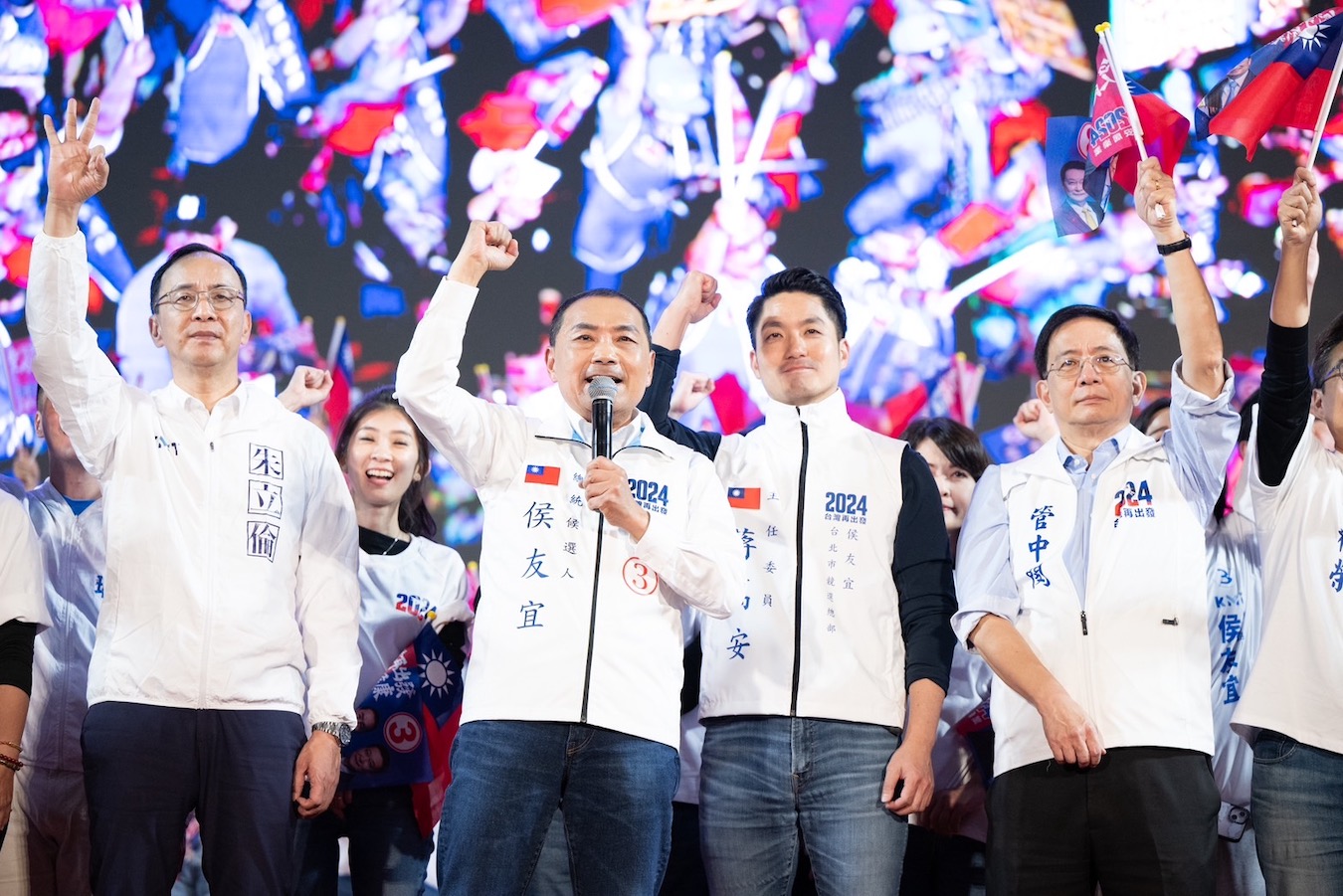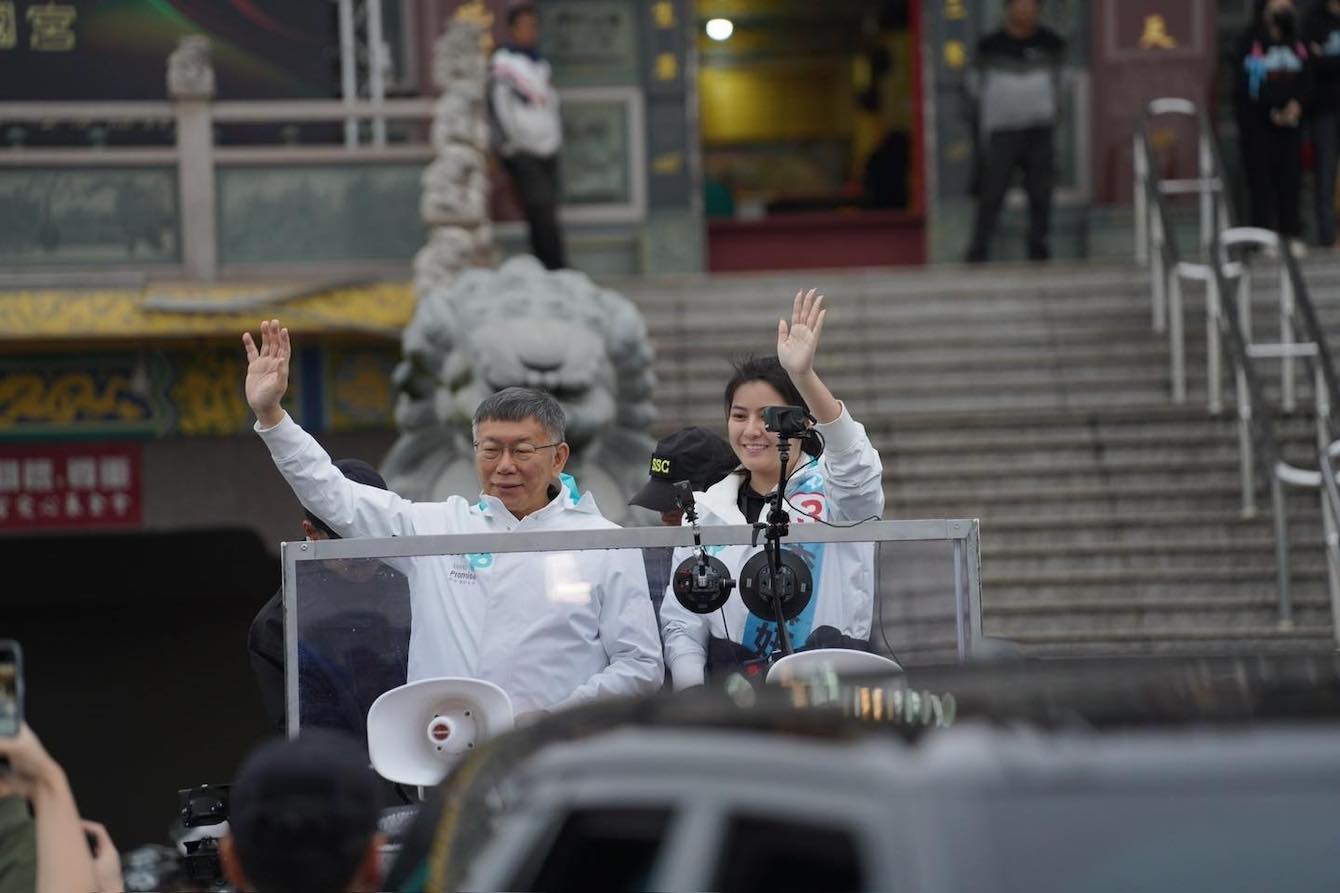by Brian Hioe
語言:
English
Photo Credit: Ko Wen-je/Facebook
ONE OF THE most ambiguous of the campaign promises to date offered by Taiwanese politicians has been the pan-Blue camp’s call for a shift to a cabinet-style system. It is unclear what this would consist of, seeing as such a shift would require constitutional changes in Taiwan’s political system.
In truth, it is unknown if the KMT and TPP would genuinely commit to the idea, given the vast amount of political capital that must be spent on changing the constitution. The idea was proposed by the TPP in an off-the-cuff manner in the course of negotiations between the TPP and KMT about a joint presidential ticket.
The idea likely originates from an attempt by TPP presidential candidate Ko Wen-je to have a distinctive political platform of change which would set him apart from either the KMT and DPP. But in the course of negotiations, the KMT also signed onto the idea. Officially, the KMT is still committed to the idea.
 KMT presidential candidate Hou You-yi (center-left). Photo credit: Hou You-yi/Facebook
KMT presidential candidate Hou You-yi (center-left). Photo credit: Hou You-yi/Facebook
Ko has provided some details of what this would entail, claiming that he hoped that if he became president, he would become not a president but a prime minister. Ko claimed that a cabinet-style system, in which appointments needed to be approved by the legislature, would result in a more democratic system than what he has termed the dictatorial rule of the president in the current presidential system–though, of course, the president is democratically elected.
KMT candidate Hou You-yi has been slightly more vague than Ko, likely because his party signed onto the platform as part of negotiating with Ko. But in the face of DPP criticisms, Hou claimed that shifting to a cabinet-style system could be an opportunity for reform.
DPP presidential candidate Lai Ching-te criticized the vagueness of the proposal in the presidential debate, pointing out that in the cabinet-style system of many countries, the president is not directly elected. As such, Lai questioned the pan-Blue candidates as to whether their proposal was to end the democratic election of presidential candidates. To this, both pan-Blue candidates claimed otherwise, that a cabinet-style system was instead an attempt to make Taiwan’s political system more democratic.
Much uncertainty remains about the proposal, then. However, an incident earlier this week in which the KMT pushed for Premier Chen Chien-jen being required to visit the legislature to face interrogation over the disclosure of the contract for Taiwan’s domestically-manufactured vaccine, Medigen, proves instructive.
The KMT and TPP both claim that as part of the shift to a cabinet-style system, the president and premier would be required to report to the legislature. While the DPP has responded that this already takes place, the KMT and TPP may be looking for more opportunities to publicly attack DPP leaders in the executive branch of government in front of a national audience. They may hope to gain political ground in this way.
 TPP presidential candidate Ko Wen-je waving to supporters. Photo credit: Ko Wen-je/Facebook
TPP presidential candidate Ko Wen-je waving to supporters. Photo credit: Ko Wen-je/Facebook
Likewise, the pan-Blue camp is probably aiming to increase its power over appointments by the executive branch of government if in the future they have to be approved by the legislature. If indeed the pan-Blue camp controls the legislature but not the presidency after the election cycles, this could be a way for the pan-Blue camp to impact the performance of the executive branch of government without controlling it.
It is unknown whether the pan-Blue camp would engage in scorched earth tactics against the DPP, in refusing to allow any appointments to pass. This is to be seen, though one notes that political rhetoric from the pan-Blue camp has become increasingly hyperbolic in its accusations against the DPP, and this is not unthinkable. The KMT has suggested that it may be interested in jailing Tsai Ing-wen when she leaves office by reinstating the Special Investigation Division, for example, with the view that this would be just retaliation for what it claims to be the DPP’s efforts to target it through transitional justice efforts or media regulation.
Still, the barrier to enacting a constitutional change is quite steep. Given the comparative weakness of the KMT in past years, it is unlikely the party has enough political capital to successfully push for a constitutional change at present. As such, it is unlikely that the idea can get off the ground, unless Taiwanese society were to embrace it en masse suddenly. Certainly, the KMT would be unable to carry on the idea on its own.

